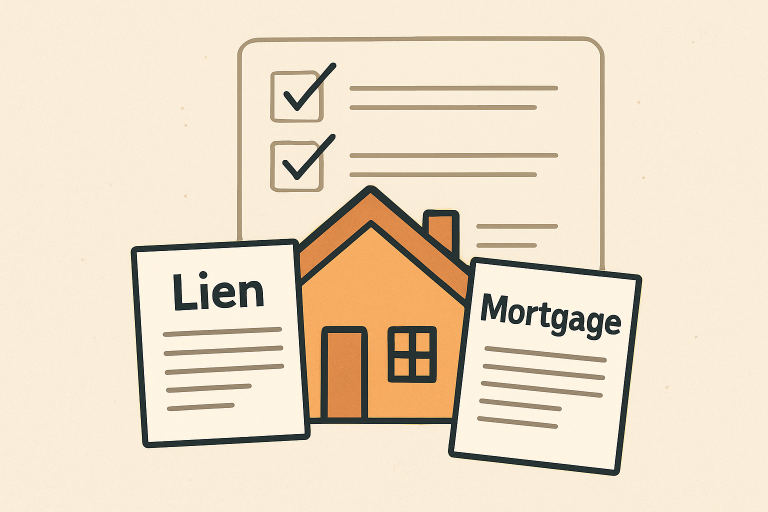Understanding Liens and Mortgages
When selling a home, understanding how existing liens or mortgages affect the transaction is paramount. Liens are legal claims against your property—mortgages are the most common, but tax liens, mechanics’ liens, or court judgments can all impact the sale. These outstanding balances or claims must be addressed to ensure the buyer gets clear ownership and avoid legal complications that could stop the transaction.
Sellers looking for the fastest solutions or lucrative home deals often realize that unresolved debts slow down closing, affecting their bottom line and the chance to move forward as planned. Ignoring these obligations usually leads to frustrated buyers, falling negotiations, and potential legal ramifications.
Why Clear Title Matters to Buyers
A clear, undisputed title is one of the most important assets you can offer a buyer. Title problems—often stemming from unresolved liens—are among the top reasons real estate transactions are delayed or cancelled altogether. Unresolved title issues account for nearly 11% of delayed closings nationally. Buyers want assurance that they are taking ownership of a debt-free property; anything less raises red flags and can cause deals to collapse, costing everyone time and money.
Identifying Existing Liens on Your Property
Sellers should first uncover all active liens via a title search by an attorney, escrow officer, or title company, checking public records for mortgages, taxes, or contractor claims. Gathering statements, pay-off letters, and documents ahead of time builds transparency and buyer confidence. Thorough documentation helps impress buyers and smooth negotiations, boosting credibility in a competitive market. Addressing claims early is vital for a full price offer; unresolved issues can deter buyers or lower offers. Being proactive helps resolve problems before listing, reducing delays, and clear lien communication reassures buyers, building trust in the transaction.

Steps to Resolve Liens Before a Sale
- Contact lien holders to verify balances and get pay-off info.
- Negotiate a settlement, especially for quick payment, and get written confirmation.
- Pay the balance, then request a lien release to confirm debt clearance.
Collaborate with your real estate agent or attorney throughout this process. They can ensure the correct procedures are followed and help avoid documentation errors that might resurface at closing.
Managing Mortgages When Selling
Mortgages are sellers’ primary lien, and the payoff process requires prompt coordination with the lender. When a home is under contract, request a payoff statement showing the remaining balance, fees, and interest. At closing, the closing agent or attorney pays these mortgage balances directly from the sale proceeds, ensuring a smooth transfer and minimizing post-closing issues.
What to Expect During Closing
During closing, the title company, attorney, or escrow agent handles the release and payment of outstanding liens or mortgages using transaction funds. The buyer receives a clear title, and the seller gets net proceeds. Careful review of closing documents is essential to prevent future title problems. However, missing paperwork or unexpected debts can delay or prevent closing, requiring preparation and professional cooperation.
Final Takeaways
Understanding and addressing liens and mortgages before selling your home is key to a smooth transaction. Resolving outstanding claims, coordinating with lien holders, and ensuring clear documentation protects buyers and sellers. By taking these steps, sellers can avoid delays, build trust, and maximize their sale proceeds, making the closing process efficient and stress-free.

